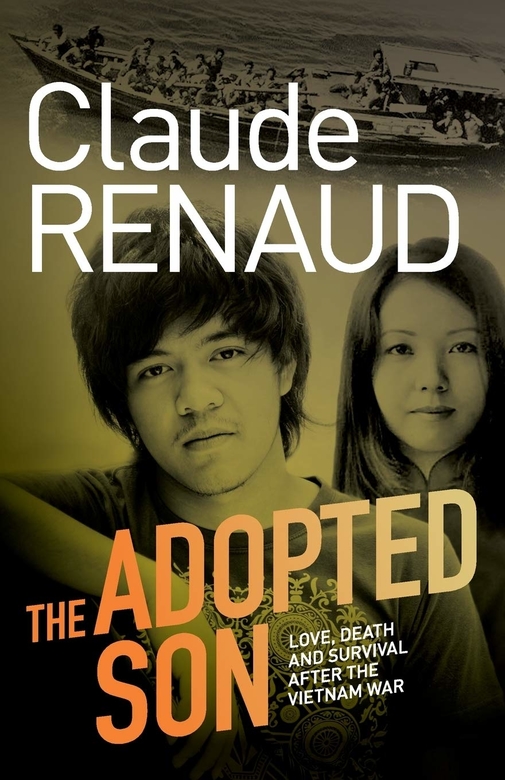
Unbreakable ties across time and a brilliant snapshot of untold history make The Adopted Son by Claude Renaud a gripping, perspective-shifting thrill.
A mysterious figure from Paul Quinn’s past appears in Sydney two decades after their fateful encounter in the days leading up to the fall of Saigon. After hearing Hao Tran’s story of struggle, and feeling sympathetic to the plight of Eric, her son, whose father was one of Quinn’s fallen military comrades, this retired spy’s quiet life turns upside down, and long-buried heroism bubbles to the surface.
Not only does he adopt a fatherly approach to this unexpected crisis, but also finds himself drawn to Hao, and to a different version of a life than the one he chose. Fighting to earn Eric’s trust, and to keep him safe from very dangerous company, while navigating uncharted romantic waters all at the same time, Quinn is an endearing and deeply human protagonist. The complex dynamics of a white ex-spy getting involved in far-right political battles in the Vietnamese community are dicey, to say the least, and it isn’t long before Quinn is once again putting his own life in the crosshairs, determined to save a son from the same fate as his father.
The dangerous world of radical political activism gives this story a contemporary edge, despite primarily being set in the mid-90s. Many of the sentiments and concerns of Ms. Tran will echo with today’s readers, who may also be experiencing newly awoken political passion in their children. The emotional toll of great personal loss, the generational weight of grief, and anger that has nowhere to go, all make Eric a wild card of a character. However, Renaud teases out the delicate nuances between extremism and activism, and never paints a group or philosophy with a broad brush. The depth of the story reveals a considerable knowledge of the subject matter, as well as a personal investment in the dynamic cultures of both Vietnam and Australia.
Each relationship is believable, and the slow unfurling of the plot is patient and confident. Quinn’s occasional bungling of the tangled drama is an unexpected yet refreshing tack from the author, making this story feel more realistic, rather than one in which the dashing English-speaking hero repeatedly saves the day. Instead, the novel highlights the diversity of the Vietnamese community, and the divisions tearing it apart throughout the decades following the Vietnam war. This is a part of history to which many people don’t pay attention – the aftermath of deadly conflicts, and the additional horrors that power vacuums can create – and weaving these powerful thematic threads through an already engaging story is what helps this novel inform and entertain on multiple levels.
The writing itself is crisp and well-edited, but some of the extended sections of dialogue are a bit plodding, while the expositional paragraphs are often clumped together, so a bit of final editing or re-ordering would help the flow, but this is ultimately a small critique. Overall, this unpredictable novel is difficult to categorize in a genre, but it is a remarkably good read that should have broad appeal for its universal themes and powerful focus.
Book Links
STAR RATING
Design
Content
Editing
Get an Editorial Review | Get Amazon Sales & Reviews | Get Edited | Get Beta Readers | Enter the SPR Book Awards | Other Marketing Services























Leave A Comment